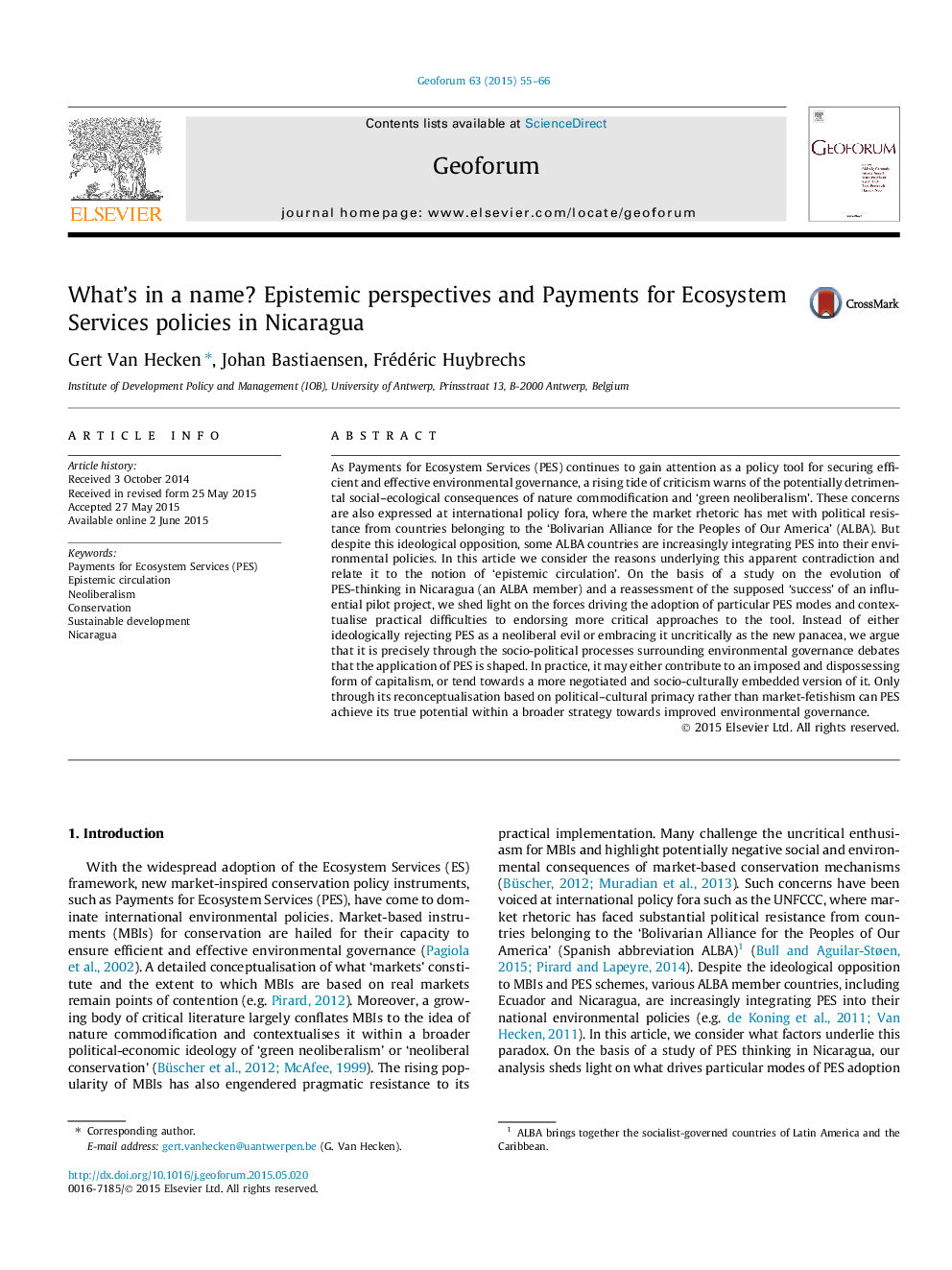| کد مقاله | کد نشریه | سال انتشار | مقاله انگلیسی | نسخه تمام متن |
|---|---|---|---|---|
| 5073652 | 1477126 | 2015 | 12 صفحه PDF | دانلود رایگان |
- The PES debate is polarised between pro-market and anti-neoliberal arguments.
- Despite socialist anti-market rhetoric, Nicaragua tends to adopt market-based PES.
- It is hard to resist the dominant 'epistemic circulation' of PES successes.
- Only through a political-cultural reconceptualisation can PES attain its potential.
As Payments for Ecosystem Services (PES) continues to gain attention as a policy tool for securing efficient and effective environmental governance, a rising tide of criticism warns of the potentially detrimental social-ecological consequences of nature commodification and 'green neoliberalism'. These concerns are also expressed at international policy fora, where the market rhetoric has met with political resistance from countries belonging to the 'Bolivarian Alliance for the Peoples of Our America' (ALBA). But despite this ideological opposition, some ALBA countries are increasingly integrating PES into their environmental policies. In this article we consider the reasons underlying this apparent contradiction and relate it to the notion of 'epistemic circulation'. On the basis of a study on the evolution of PES-thinking in Nicaragua (an ALBA member) and a reassessment of the supposed 'success' of an influential pilot project, we shed light on the forces driving the adoption of particular PES modes and contextualise practical difficulties to endorsing more critical approaches to the tool. Instead of either ideologically rejecting PES as a neoliberal evil or embracing it uncritically as the new panacea, we argue that it is precisely through the socio-political processes surrounding environmental governance debates that the application of PES is shaped. In practice, it may either contribute to an imposed and dispossessing form of capitalism, or tend towards a more negotiated and socio-culturally embedded version of it. Only through its reconceptualisation based on political-cultural primacy rather than market-fetishism can PES achieve its true potential within a broader strategy towards improved environmental governance.
Journal: Geoforum - Volume 63, July 2015, Pages 55-66
